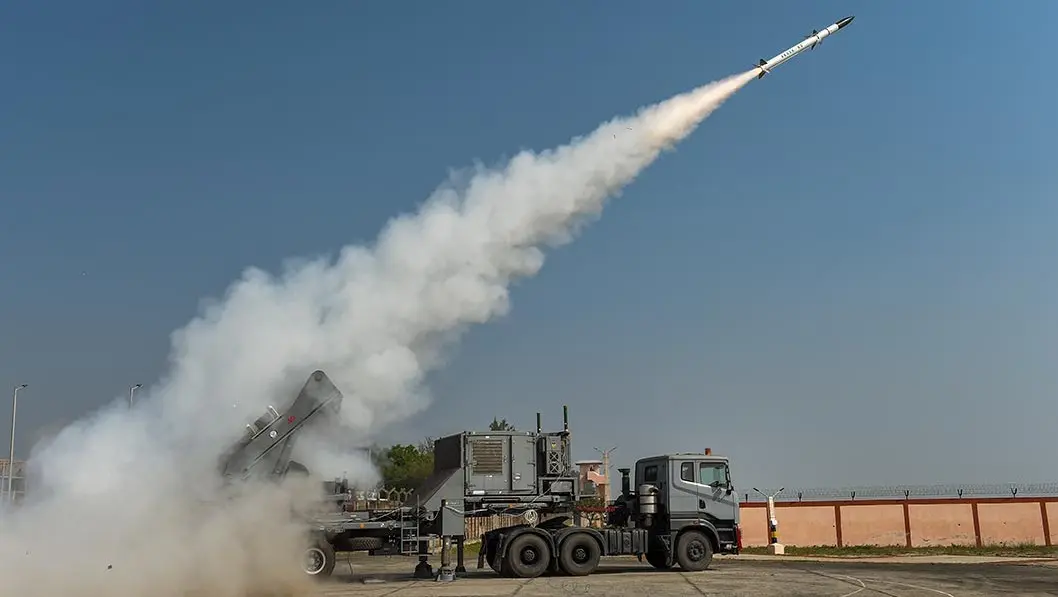
Brazil halts negotiations with India over the Akash air defence system, citing outdated technology
Brazil’s Strategic U-Turn: Why the Akash Deal Collapsed
Missile Diplomacy Fallout- In a surprising move, Brazil officially suspended negotiations with India over the purchase of the Akash air defence system, opting instead to explore a deal with Italy’s EMADS (Enhanced Modular Air Defence Solutions). The decision came despite months of bilateral discussions and a promising start during Prime Minister Modi’s visit to Brazil for the 17th BRICS Summit.
Key Reasons Behind Brazil’s Exit:
- Outdated Technology: Brazil was reportedly offered an older version of Akash, lacking enhancements like active radar homing, networked targeting, and faster reaction times found in the newer Akash-NG variant.
- Performance Concerns: Brazilian military officials found the system insufficient for modern threats, especially high-speed drones and cruise missiles.
- Western Alternatives: Brazil is now negotiating with Italy’s MBDA for the EMADS system, which uses CAMM-ER missiles with a range of up to 45 km and advanced radar capabilities.
The fallout is significant. Brazil had previously shown interest in co-developing defence platforms with India, including coastal surveillance systems and artillery guns. But the Akash deal’s collapse signals a shift toward Western suppliers, even at the cost of BRICS solidarity.
Turkey’s Tactical Celebration: Erdogan’s Media Machine Goes All In
As Brazil backed away from India’s Akash system, Turkey wasted no time capitalizing on the moment. A conservative Turkish website TRHaber, launched a media offensive, mocking India’s missile capabilities and pitching Turkey’s Hisar-A+ and Hisar-O+ systems as superior alternatives.
Highlights from Turkey’s Reaction:
- Mockery of Akash: TRHaber claimed the Akash system “flopped in Brazil” and was “extremely outdated,” referencing its alleged failure in Armenia against Turkish UAVs.
- Promotion of Hisar Systems: Turkey touted its Hisar-O+ as a 360-degree defence system capable of engaging nine targets simultaneously, with advanced sensors and infrared seekers.
- Strategic Leverage: Turkish media speculated that Brazil might deepen cooperation with Turkey, especially around the KC-390 military cargo aircraft, built by Brazilian aerospace giant Embraer.
President Recep Tayyip Erdoğan, known for his assertive foreign policy and pro-Pakistan stance, is reportedly pleased with the shift. The Turkish narrative frames this as a win over India, reinforcing Ankara’s ambitions to expand its defence footprint in Latin America.
India’s Defence Diplomacy Under Pressure: Lessons from the Akash Setback
India’s Akash missile system, developed by DRDO, has been a symbol of indigenous defence capability. It played a key role in Operation Sindoor, intercepting Pakistani drones and cruise missiles with precision. Yet, the Brazil episode exposes critical gaps in India’s defence export strategy.
What Went Wrong:
- Offering Older Versions: India reportedly offered Brazil the legacy Akash system instead of the upgraded Akash-NG, which features Mach 2.5 speed, active homing, and better saturation resistance.
- Missed Opportunity for Co-Development: Brazil was open to joint ventures and tech transfers, but talks stalled over mismatched expectations and lack of customization.
- Geopolitical Blind Spot: India underestimated Brazil’s pivot toward Western defence ecosystems, especially amid growing NATO influence and regional security concerns.
Despite the setback, India continues to explore defence partnerships with Brazil, including Scorpène-class submarine maintenance, coastal surveillance, and Garuda artillery systems. But the Akash episode serves as a wake-up call to prioritize innovation, agility, and strategic packaging in future deals.
The Bigger Picture: BRICS Fractures, Global Realignments, and What’s Next
Brazil’s decision to halt the Akash deal isn’t just a bilateral hiccup, it’s a reflection of shifting global alliances and the fragility of BRICS cohesion. While India and Brazil reaffirmed broader defence cooperation during PM Modi’s visit, the missile deal’s collapse reveals deeper fault lines.
Emerging Trends:
- Technology Over Alliances: Brazil’s move underscores a pragmatic approach, choosing the best tech over political loyalty, even if it means distancing from BRICS partners.
- Turkey’s Opportunism: Erdogan’s administration is leveraging every opening to expand its defence exports, especially in regions where India seeks influence.
- India’s Strategic Recalibration: To stay competitive, India must:
- Offer latest systems in export deals
- Embrace joint R&D and customization
- Strengthen after-sales support and training
The Akash system remains a formidable platform, but its export success will depend on how India packages, upgrades, and positions it globally. Brazil’s pivot may sting, but it also opens the door for introspection and innovation.
Stay updated with the latest news on Rapido Updates. Keep yourself updated with The World, India News, Entertainment, Market, Automobile, Gadgets, Sports, and many more